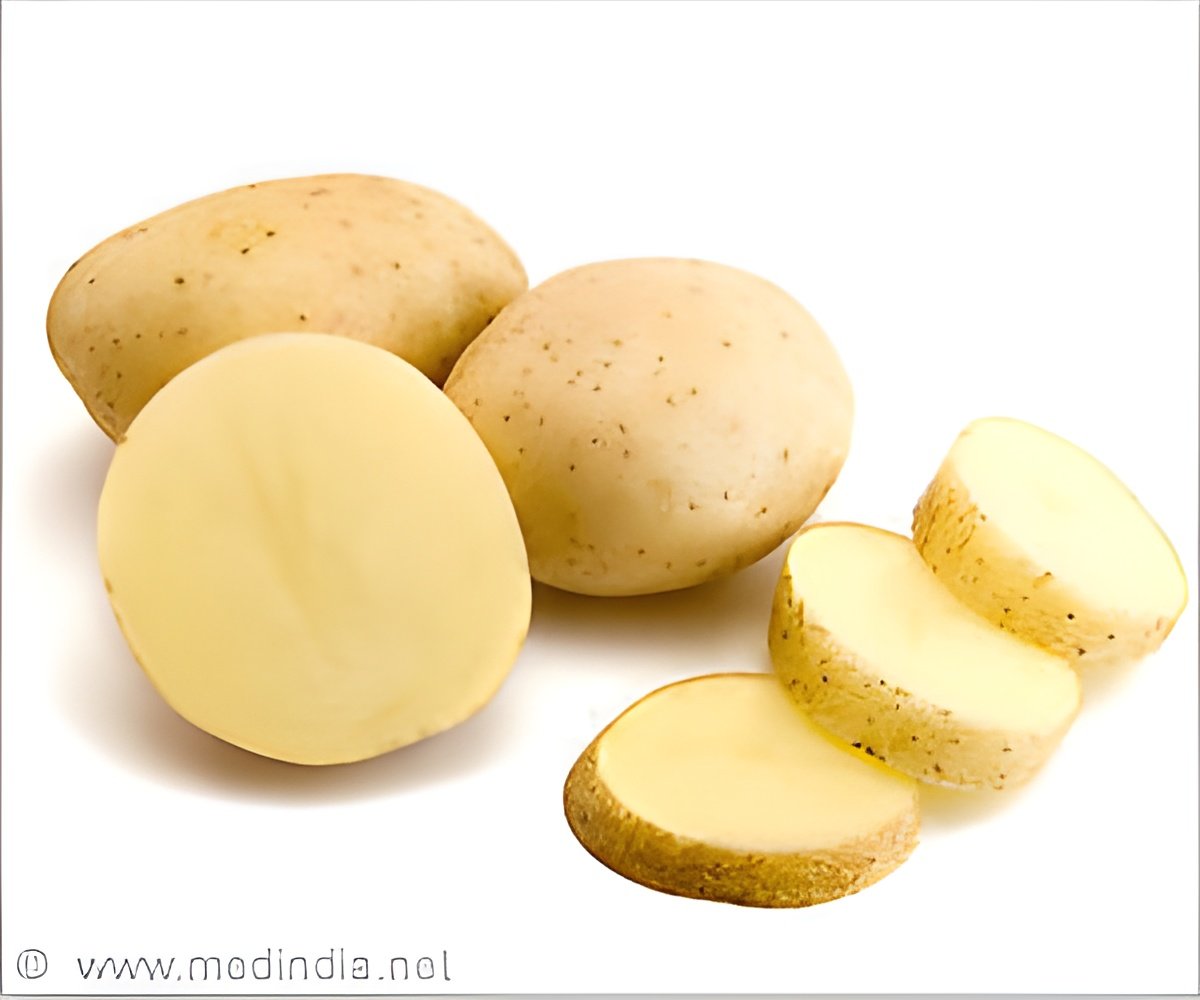An experimental 'golden' potato is being developed that can provide as much as 42 percent of a child's recommended daily intake of Vitamin A.

‘A lot of people depend on the potato as their main source of energy, and serving of the yellow-orange lab-engineered potato can curb disease in developing nations.’





The "golden" potato also provides 34 percent of Vitamin E, which protects against oxidative stress and inflammation, conditions associated with damage to nerves, muscles, vision and the immune system. Women of reproductive age who consume 150 gm of "golden" potato could get 15 percent of their recommended vitamin A as well as 17 percent of recommended Vitamin E.
"More than 800,000 people depend on the potato as their main source of energy and many of these individuals are not consuming adequate amounts of these vital nutrients," said Mark Failla, a professor at the varsity.
"These golden tubers have far more Vitamin A and E than white potatoes and that could make a significant difference in certain populations where deficiencies -- and related diseases -- are common," Failla added.
For the study, appearing in the journal PLOS ONE, the team created a simulated digestive system including a virtual mouth, stomach and small intestine to determine how much Provitamin A and Vitamin E could potentially be absorbed by someone who eats a golden potato.
Advertisement
Source-IANS














